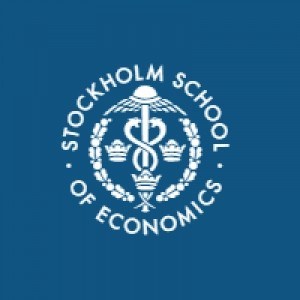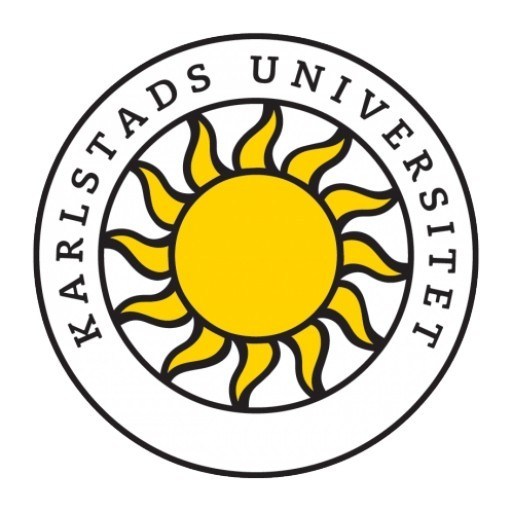Photos of university / #lundsuniversitet
Master’s Programme in Economics at Lund University offers a comprehensive and rigorous education designed to equip students with the analytical skills and theoretical knowledge necessary to understand complex economic phenomena and to contribute to solving real-world challenges. The program provides a solid foundation in microeconomics, macroeconomics, and econometrics, combined with practical applications and research methods. Students will explore various fields within economics, including environmental economics, development economics, labor economics, and financial economics, allowing for specialization according to individual interests and career goals.
Throughout the programme, students engage with both theoretical concepts and empirical techniques, preparing them for careers in government agencies, international organizations, private sector firms, and academia. The curriculum emphasizes critical thinking, quantitative analysis, and problem-solving skills, with coursework complemented by workshops, seminars, and research projects. The programme also encourages international perspectives and collaboration, reflecting Lund University's commitment to fostering a global outlook.
Students have access to state-of-the-art facilities and resources, including access to extensive economic databases and software tools for data analysis. The faculty members are internationally recognized researchers and practitioners dedicated to providing high-quality teaching and supervision. In addition to classroom learning, students are encouraged to participate in internships, international exchange programs, and conferences to enhance their practical experience and professional networks.
Graduates from the Master's Programme in Economics are well-prepared for doctoral studies or to enter the workforce in diverse roles requiring strong analytical and quantitative skills. The programme's international accreditation ensures a high standard of education that aligns with global academic and professional norms, making Lund University a prestigious choice for students aspiring to excel in the field of economics. With its vibrant academic community, innovative research environment, and strong connections to industry and policy institutions, Lund University's Master's Programme in Economics offers an excellent platform for personal and professional development in the dynamic world of economics.
The Economics program at Lund University offers a comprehensive and rigorous education designed to equip students with a strong foundation in economic theory, quantitative methods, and real-world application. Over the course of two years, students will explore core economic concepts including microeconomics, macroeconomics, and econometrics, alongside specialized topics such as behavioral economics, environmental economics, and development economics. The program emphasizes analytical thinking and problem-solving skills, enabling graduates to analyze complex economic issues, evaluate policy options, and develop innovative solutions in diverse settings.
Throughout their studies, students will engage in a variety of teaching methods, including lectures, seminars, case studies, and group projects, fostering collaboration and practical understanding. The curriculum incorporates extensive training in econometric software and statistical analysis, preparing students to handle large data sets and conduct empirical research. In addition to theoretical knowledge, the program stresses the importance of ethical considerations and sustainability, encouraging students to think critically about economic impacts on society and the environment.
The program also features opportunities for internships and exchange studies, allowing students to gain international experience and apply their skills in real-world contexts. Lund University’s strong ties with the business sector and public institutions provide valuable networks and insights into current economic challenges and trends. Graduates of the program are well-positioned for careers in consulting, finance, public policy, international organizations, or further academic studies.
Students are supported throughout their education by experienced faculty members who are active researchers in their respective fields. Upon completion, students will be able to analyze economic problems systematically, employ quantitative tools to inform decision-making, and communicate their findings effectively. The program aims to cultivate independent, critical thinkers capable of contributing to economic development and policy-making at local, national, and global levels.
Admission to the two-year Master's programme in Economics at Lund University requires applicants to possess a Bachelor's degree or an equivalent qualification in Economics, Business Administration, or a closely related field. Applicants must demonstrate proficiency in English, typically through standardized tests such as TOEFL or IELTS, meeting or exceeding the university's minimum score requirements. The application process also necessitates the submission of a CV and a letter of motivation explaining the applicant's interest in the programme and career aspirations.
The programme prerequisites include a solid foundation in microeconomics, macroeconomics, and quantitative methods. Specifically, applicants are expected to have completed courses covering essential economic theories, econometrics, and statistical analysis. Prior experience with mathematical methods and data analysis tools is also advantageous. While specific course prerequisites may vary, applicants with coursework in calculus, linear algebra, and probability theory are preferred, as these form the basis for many modules within the programme.
The selection process at Lund University considers academic records, motivation letter quality, and relevant experience. Quality assessments focus on the applicant's potential for success in advanced economic studies and their capacity for analytical and critical thinking. Preference may be given to applicants demonstrating a strong interest in economic research and policy analysis.
The programme itself is designed to provide an in-depth understanding of economic theories and their practical applications. It comprises compulsory courses, optional electives, and the completion of a thesis project. The curriculum emphasizes empirical research, economic modeling, and policy analysis. Students are expected to develop strong analytical skills, statistical competence, and the ability to interpret complex economic data.
Graduates of the programme are equipped with skills suitable for careers in consultancy, government agencies, international organizations, financial institutions, and research institutes. The programme encourages the development of independent thinking, research capabilities, and professional communication skills. Throughout the two years, students have access to Lund University's extensive academic resources, including libraries, research centers, and networking opportunities with industry professionals.
Overall, successful applicants will demonstrate a thorough preparation in economics and quantitative methods, a clear motivation for advanced economic study, and the ability to contribute to a rigorous academic environment. The admissions criteria ensure that students are well-equipped to meet the challenges of the curriculum and to excel in their future careers in economics.
The Master’s Programme in Economics at Lund University offers students a comprehensive understanding of financial management, economic analysis, and policy development, which are essential skills for pursuing a career in finance, government, or international organizations. The programme's financing aspects are primarily supported through a combination of tuition fees, scholarships, and potential financial aid options. Tuition fees for non-EU/EEA students are applicable, and students are encouraged to actively seek external scholarships, such as Swedish Institute Scholarships, which are available for qualified applicants. These scholarships often cover full or partial tuition fees and may include stipends for living expenses, depending on the specific scholarship program. European Union/EEA students typically do not pay tuition fees at Lund University, as they are eligible for domestic fee waivers.
Lund University also participates in various national and international financial aid programs, which can assist students with living costs and other expenses. Students are advised to explore options such as student loans, which may be available through governmental or private sources, though specific provisions for international students can vary. Additionally, part-time work opportunities within the university or in the city of Lund can provide supplementary income, although students should consider visa regulations and work restrictions when planning employment during their studies.
Financial planning is crucial given the living costs in Lund, which include accommodation, transportation, and daily expenses. The university’s official website offers detailed estimates of living costs, enabling students to budget accordingly. Students are encouraged to apply early for scholarships and financial aid, and to consider external funding sources where applicable. Overall, the programme's financing requires careful preparation, with a mix of scholarships, personal savings, and employment options serving as viable means to support students throughout their two-year academic journey.
The Master's Programme in Economics at Lund University is a comprehensive two-year program designed to equip students with a solid foundation in economic theory, quantitative methods, and practical skills necessary for understanding complex economic issues. The program emphasizes analytical thinking and problem-solving, integrating both microeconomic and macroeconomic perspectives to provide a well-rounded understanding of economic systems. Throughout the coursework, students engage with topics such as economic policy analysis, financial markets, development economics, and behavioral economics, preparing them for various careers in public administration, private sector, or further academic pursuits.
Lund University’s Economics program benefits from close ties with the business community and offers opportunities for internships, collaborative projects, and interactions with industry experts. The program is tailored to develop students’ ability to analyze economic problems critically, interpret data accurately, and communicate insights effectively. The curriculum incorporates rigorous training in quantitative methods, including econometrics, to ensure graduates are proficient in data analysis, an essential skill in today’s data-driven economy.
Students also have the chance to participate in various seminars, workshops, and guest lectures to broaden their understanding of current economic issues and research developments. The program encourages internationalization, attracting students from around the globe, fostering a diverse academic environment that promotes global perspectives on economic challenges. Upon completion, graduates are prepared for careers in consultancy, banking, international organizations, or pursuing doctoral studies. The program’s structured design, focusing on theoretical knowledge and practical application, aims to prepare students for diverse roles in a rapidly changing economic landscape, making Lund University’s Economics program a highly attractive choice for aspiring economists.
Summer internships, exchange opportunities within Lund University’s extensive international network, and access to cutting-edge research further enhance the student experience. Graduates of the program will have the analytical tools and theoretical grounding necessary to contribute to economic policy, business strategy, or further academic research, positioning them well for success in a competitive global job market.









